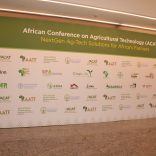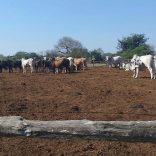Mozambique and the World Bank align strategies - Notícias
INGC urges farmers to grow drought-resistant crops

Stock (For illustration purposes only)
The Mozambican relief agency, the National Disasters Management Institute (INGC), has launched an initiative in the central province of Manica, to raise awareness of the need to grow drought resistant crops.
So far, at least 1,500 people have benefitted from this campaign, which also seeks to improve methods of conserving food in areas prone to drought. Manica is one of the provinces that was severely hit in 2016 by the drought linked to the El Nino weather phenomenon.
The INGC hopes to pass on knowledge of how to produce crops in arid zones, and how to make the best use of low lying areas that conserve humidity.
In Manica, eight communities in the districts of Machaze, Tambara and Guro have been covered by this programme.
Addressing the people of Thanda village, in Guro, last Monday, the INGC Manica provincial delegate, Teixeira Almeida, said “The country suffers from many disasters. Floods and droughts leave many households plunged into misery. But when it comes to floods, we already have a plan that allows us to intervene immediately”.
But the government regards recurrent drought as a very serious problem for people living in parts of Manica. “That’s why, in this province, we are working in three districts where drought happens almost every year”, said Almeida.
So the INGC is trying to teach people the importance of drought resistant crops and of the low lying areas near rivers.
“We are teaching how to make use of the low lying areas for food production, how to conserve what is produced in each campaign and to make adequate use of the little water that exists in these communities”, said Almeida. “These are initiatives that the communities will have to take into consideration, because they will help them fight against hunger”.
Thanda, on the banks of the Luenha river, has a total population of 4,000 people who mostly make their living out of farming. The dominant crops are sorghum, vegetables and pulses.
In addition to Manica, this INGC programme is also being implemented in the neighbouring provinces of Tete and Sofala, and in the three southern provinces of Inhambane, Gaza and Maputo, covering communities who have been severely affected by drought.












Leave a Reply
Be the First to Comment!
You must be logged in to post a comment.
You must be logged in to post a comment.